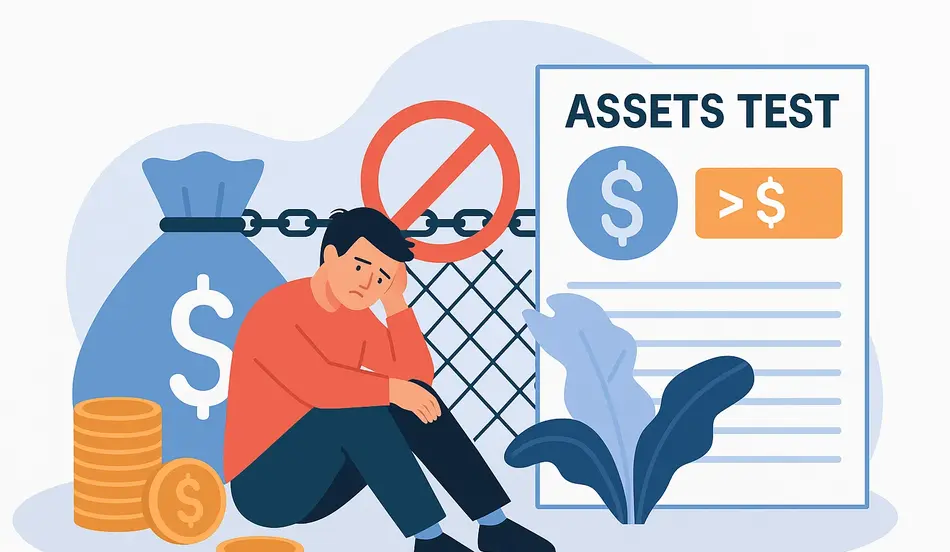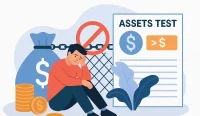Recent changes to the JobSeeker liquid assets test, however, are making that journey more challenging for those in desperate need. In this comprehensive guide, we’ll break down what these changes mean, who is affected, and how you can navigate the new landscape to achieve your own unstoppable success.
The liquid assets test is a crucial part of the JobSeeker eligibility process. It determines how much money you have in cash, bank accounts, shares, and other easily accessible assets. The government’s recent tightening of this test has left many Australians locked out of much-needed support, even as the cost of living continues to rise.
- Many applicants are now required to wait longer before receiving payments.
- Those with modest savings may find themselves ineligible for JobSeeker support.
What Are the JobSeeker Liquid Assets Test Changes?
In 2025, the Australian government revised the thresholds and waiting periods for the liquid assets test. The new rules mean that if you have more than a certain amount in liquid assets, you may have to wait up to 13 weeks before receiving JobSeeker payments.
This change is designed to encourage self-reliance, but it has unintended consequences for people who have lost jobs unexpectedly or are facing sudden financial hardship.
- Single applicants with more than $5,500 in liquid assets face a waiting period.
- Couples or those with dependents have a higher threshold, but still face delays.
JobSeeker Test Changes Are Locking Out Australians
Stricter liquid asset tests are leaving many Australians desperate and without support. Employers can step up by creating opportunities that provide stability and hope. Post your job on WhatJobs today and connect with candidates who need a fair chance to get back on their feet.
Post a Job Free for 30 Days →Who Is Most Affected?
The changes disproportionately impact low- and middle-income Australians who have managed to save a small emergency fund. Instead of being rewarded for financial prudence, these individuals are penalized, forced to exhaust their savings before qualifying for help.
Case Study: Sarah’s Story
Sarah, a single mother of two, lost her job in retail. She had $6,000 in savings, which she hoped would help her family through tough times. Under the new rules, Sarah was told she had to wait 12 weeks before receiving any JobSeeker payments, leaving her to drain her savings just to cover rent and groceries.
How to Navigate the New Rules
If you’re applying for JobSeeker, it’s essential to understand how your assets are assessed. Here are some tips to help you prepare:
- Review your bank accounts and other liquid assets before applying.
- Consider how recent transactions may affect your eligibility.
- Seek advice from a financial counselor if you’re unsure about your situation.
Frequently Asked Questions
Q2: How have the JobSeeker liquid assets test changes affected Australians?
The changes have increased waiting periods and made it harder for people with modest savings to access support.
Q3: Who is most impacted by the new liquid assets test?
Low- and middle-income earners with small savings are most affected, as they must use up their savings before qualifying for JobSeeker.
Q4: What counts as a liquid asset for JobSeeker?
Liquid assets include cash, bank balances, shares, and other easily accessible funds.
Q5: How can I reduce my waiting period for JobSeeker?
Reducing your liquid assets below the threshold or providing evidence of urgent need may help reduce your waiting period.
Q6: Where can I get help if I’m struggling due to the new rules?
You can contact financial counselors, community legal centers, or Services Australia for assistance.
Navigating the Liquid Assets Test
Consider John, who was recently made redundant. He had $7,000 in his bank account. After applying for JobSeeker, he was informed of a 13-week waiting period. John reached out to a financial counselor, who helped him document his urgent expenses and appeal for a reduced waiting period. With proper documentation, John’s waiting period was shortened, allowing him to access support sooner.
While the JobSeeker liquid assets test changes present new challenges, understanding the rules and seeking support can help you overcome obstacles and achieve your own unstoppable success.




